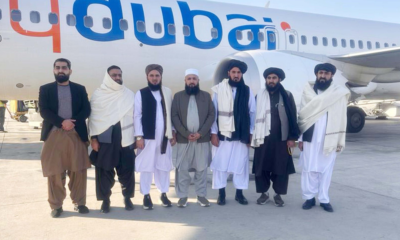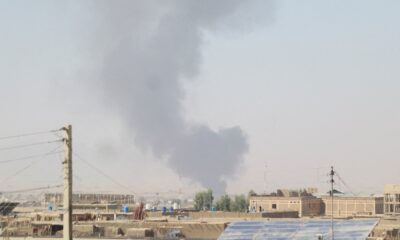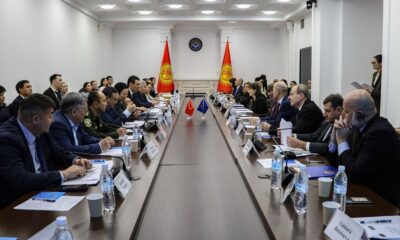Latest News
Loya Jirga urges govt to release prisoners in order to kick start peace talks
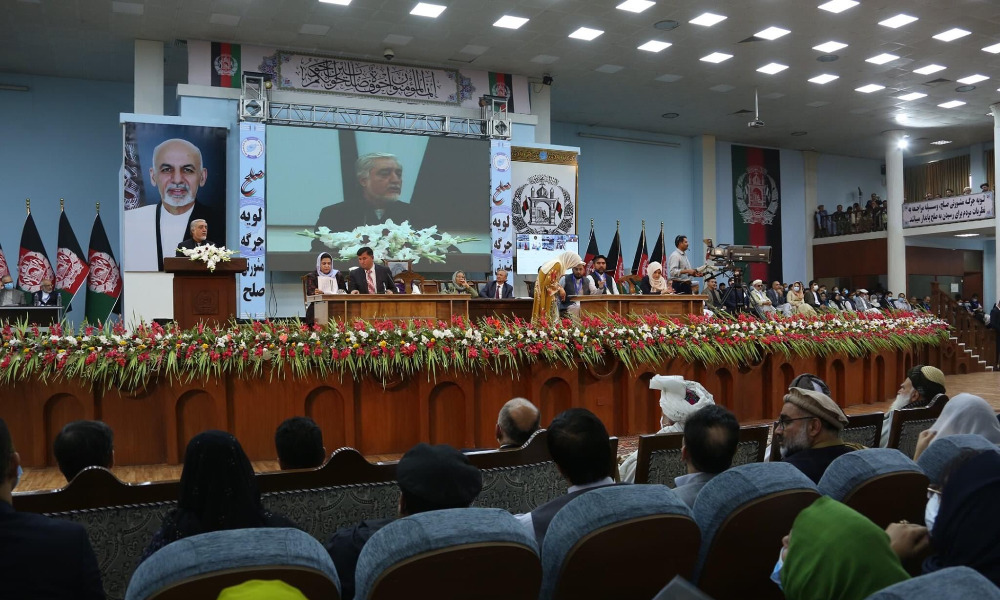
Afghanistan’s Loya Jirga, or grand council of tribal elders, community leaders, and politicians, on Saturday, urged the government to release the remaining 400 Taliban prisoners so as to move forward with intra-Afghan talks.
The Loya Jirga, called to determine the fate of the prisoners, convened Friday and wrapped up on Saturday. Over 3,200 delegates participated.
The delegates were split up into 50 working committees and discussed the prisoner release issue for two days.
Once each group had made their decision they submitted their recommendations to the Jirga’s administrative board.
All 50 committees recommended government free the 400 controversial prisoners.
Abdullah Abdullah, the head of the High Council of National Reconciliation and the chair of the Loya Jirga, said Saturday that the committees recommended the prisoners be released but that the Jirga would officially “announce the outcome tomorrow.”
“I congratulate all Jirga members divided into 50 working committees for promptly ending their free deliberations. I welcome their input and recommendations as part of this important consultative exercise as we compile & announce the outcome tomorrow,” Abdullah said in a tweet.
I congratulate all Jirga members divided into 50 working committees for promptly ending their free deliberations. I welcome their input and recommendations as part of this important consultative exercise as we compile & announce the outcome tomorrow. pic.twitter.com/K5TjBnYf4H
— Dr. Abdullah Abdullah (@DrabdullahCE) August 8, 2020
Meanwhile, Abdullah said that the direct talks between the Afghan government and the Taliban would begin three days after the end of the Jirga.
“Three days after the end of the jirga, Afghan talks will begin and we are ready to move this process forward properly to end the war in Afghanistan,” Abdullah said.
A readout of their conclusions, seen by Ariana News, indicates that these committees urged the international community, especially the United States, to guarantee the start of intra-Afghan negotiations and a comprehensive ceasefire for the release of prisoners.
In their recommendations, the committees recommended that the government and the High Council of National Reconciliation consider the following points regarding the release of the prisoners and the hoped-for intra-Afghan peace talks:
- To achieve lasting and dignified peace, the parties must show the necessary flexibility;
- Release 400 remaining Taliban prisoners so that there is no excuse to postpone peace talks;
- Unconditional ceasefire shall be established with the release of Taliban prisoners and the parties shall remain committed to it;
- Peace talks should begin as soon as possible;
- The formation of an all-inclusive national body for peace negotiations capable of defending the values and achievements of the last 19 years;
- Afghan-led peace talks should preferably be held in Afghanistan;
- The countries involved in the Afghan issue should stop supporting the Taliban and not escalate tensions;
- The Taliban should no longer carry out terrorist attacks under the name of ISIS (Daesh);
- Prisoners should be released on national and international bail so that they do not rejoin the battlefield;
- Guarantee from the international community from the start and success of the talks and the establishment of lasting peace in Afghanistan;
- Release prisoners of the country’s security forces in order to prevent the weakening of their national spirit;
- Decisively defend the republic and the achievements of the last 19 years in the peace negotiations;
- Defend the constitution, especially the second chapter of the constitution and the democratic system in negotiations;
- Protect civil liberties and rights enshrined in the Constitution, especially the rights and freedoms of women;
- Preserve freedom of speech and freedom of the press;
- Share the progress of peace talks with the people of Afghanistan during the talks;
- The government must obtain the consent of the families of war victims;
- Involve all different sections of society, especially women and youth in the peace negotiating team;
- The negotiating team must have the full capacity for dialogue;
- Peace agreements under the supervision and guarantee of the United Nations, major world and regional powers;
“All the members of the relevant committees emphasized that the people of Afghanistan have been making sacrifices for years. War has taken a heavy toll on us. To achieve peace and stability and to end the devastating phenomenon of war, we agree to release Taliban prisoners, provided that the international community guarantees the success of the talks and the establishment of lasting peace,” the chairmen of the committees said.
The chairmen added: “Agreeing to release Taliban prisoners does not mean forgiving their crimes. No individual or institution has the right to do so. But achieving peace and stability in the country is a national priority and a public necessity.
“Therefore, to facilitate the success of the peace talks, it is necessary to pave the way for the start of negotiations.”
After submitting the report of the working committees, Abdullah Abdullah, Chairman of the High Council for National Reconciliation and Chairman of the Grand Consultative Peace Jirga, meanwhile expressed his gratitude for the patience, comprehensive advice and constructive and comprehensive suggestions made by the members of the Jirga and said: “The High Council for National Reconciliation is very important and we will make great use of it in the negotiations.”
The Speaker of the Grand Consultative Peace Jirga expressed satisfaction with the successful completion of the working committees and said: “Afghanistan is at a critical and historic stage. It is a great success to understand the sensitivity of the situation and to give your advice in the light of the current situation and with the national interest in mind. However, the conditions are not favorable. But what definitely guarantees our victory is our unity.”
Meanwhile, some committees objected to the composition of the current negotiating team, urging the government to reconsider its make up and select new members for the team.
But sources close to the Taliban say that after the release of 400 prisoners, early talks are not possible and the demands of the parties involved have not been finalized.
Sayed Akbar Agha, a former member of the Taliban, said: “The Taliban are waiting for the release of 400 prisoners and the Taliban are ready for Afghan talks, but it is possible that other figures will join the government’s negotiating team and this will not be possible in a short time.”
Latest News
Baradar: Afghanistan is not an easy target, but a ‘bitter tree’

Mullah Abdul Ghani Baradar, Deputy Prime Minister for Economic Affairs, warned during a graduation ceremony for soldiers of the Ministry of National Defense that the Islamic Emirate will respond decisively to anyone with ill intentions toward Afghanistan.
He said the country is “not an easy target, but a bitter tree that has made the throats of empires bitter and newborns can never digest.”
Baradar also announced that in the coming days, the Islamic Emirate will introduce tax exemptions of one to five years for domestic and foreign investors, based on the level of investment in new sectors. He also said that the process of distribution of land to manufacturers will be accelerated.
Baradar called on countries to engage in political and economic relations according to the values and principles of the Islamic Emirate, emphasizing that energy and resources spent on conflict would be better used to support one another and strengthen common interests.
Latest News
Fourteen former Afghan government forces killed in last three months of 2025: UNAMA
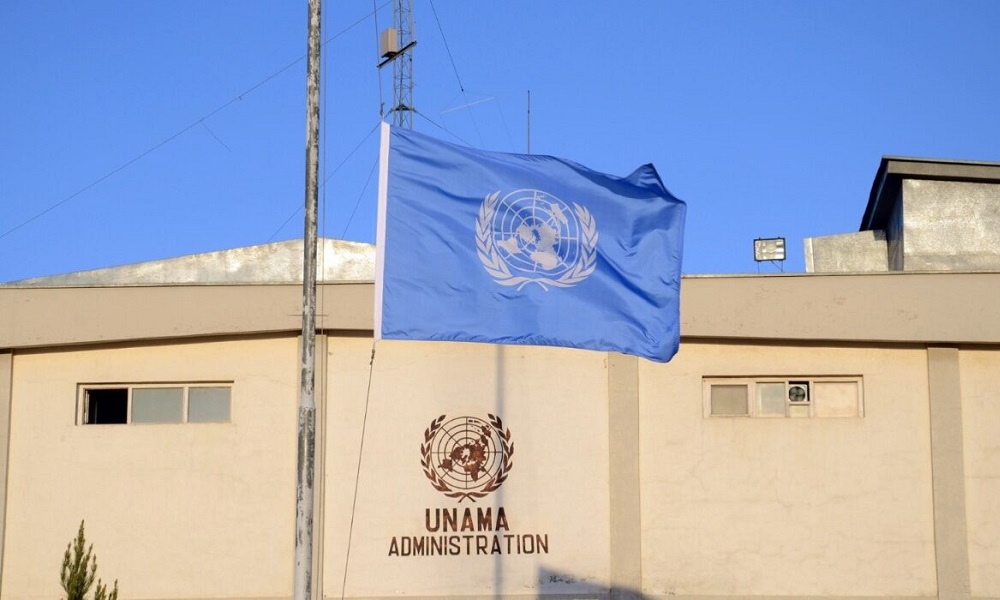
The United Nations Assistance Mission in Afghanistan (UNAMA), in its latest report on the human rights situation in Afghanistan, stated that 14 members of the former Afghan government forces were killed in the last three months of 2025.
The report noted that during this period, there were 28 cases of arbitrary arrest and detention, and at least seven cases of torture and ill-treatment targeting officials and personnel of the former Afghan government.
According to the report, some of the officials and forces who had recently returned to Afghanistan from Iran and Pakistan were among those subjected to extrajudicial killings, arbitrary arrests, and detentions.
The report also highlighted restrictions on women’s work and movement, executions and flogging of individuals, and disruptions to internet and telecommunications services.
Latest News
Afghan counter-narcotics delegation travels to Indonesia
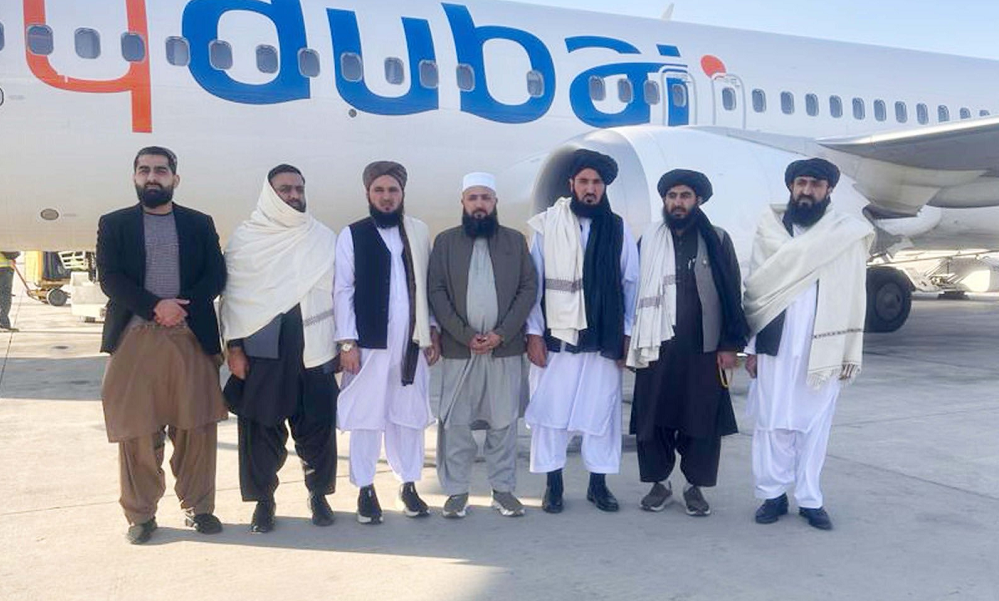
An eight-member delegation from Afghanistan, led by Haseebullah Ahmadi, chief of staff deputy interior minister for counter-narcotics, has departed for Jakarta, Indonesia.
The delegation includes officials from the Interior Ministry’s counter-narcotics deputyship as well as representatives from the Ministry of Public Health.
The visit comes at the official invitation of the United Nations Office on Drugs and Crime (UNODC) in Kabul and is supported financially by Japan.
During their stay, the delegation will participate in a meeting focused on enhancing international cooperation in combating narcotics and improving treatment programs for individuals struggling with addiction.
-
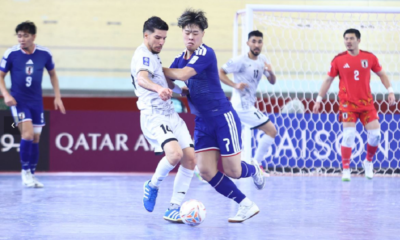
 Sport5 days ago
Sport5 days agoJapan trumps Afghanistan 6-0 in AFC Futsal Asian Cup quarter-final
-

 Sport4 days ago
Sport4 days agoHosts and heavyweights advance as AFC Futsal Asian Cup reaches semifinals
-

 Latest News3 days ago
Latest News3 days agoTerrorist threat in Afghanistan must be taken seriously, China tells UNSC
-

 Latest News4 days ago
Latest News4 days agoUzbekistan, Pakistan advance Trans-Afghan railway project
-
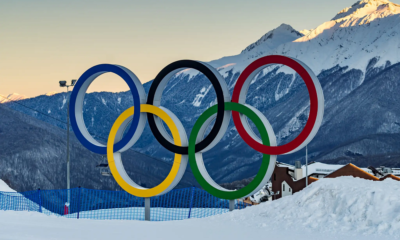
 Sport4 days ago
Sport4 days agoWinter Olympics finally underway, ATN to broadcast exclusively across Afghanistan
-

 Sport4 days ago
Sport4 days agoAfghanistan beat West Indies in final T20 WC warm-up match
-
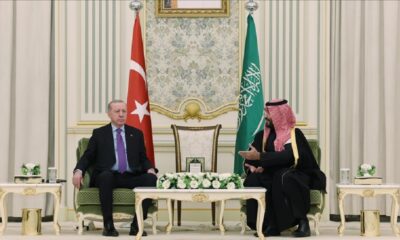
 Regional5 days ago
Regional5 days agoTurkish President Erdogan meets Saudi Crown Prince in Riyadh
-

 Sport2 days ago
Sport2 days agoIndonesia shock Japan to reach historic AFC Futsal Asian Cup final








